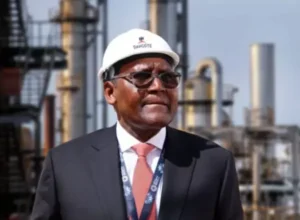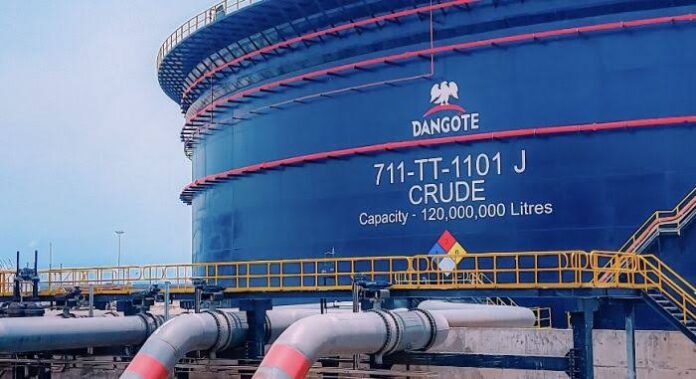Aliko Dangote, the president of Dangote Group, has asserted that diesel produced at the Dangote Petroleum Refinery & Petrochemicals, the world’s largest single train refinery, is of the highest quality in Nigeria. He claims it surpasses imported diesel and meets international standards.

Dangote’s confidence was echoed during a visit by the House of Representatives, led by Speaker Rt Hon. Tajudeen Abbas. During their tour, samples of diesel from Dangote’s refinery and two other well-known petrol stations near Eleko junction on the Lek were tested at the refinery’s state-of-the-art laboratory.
The tests showed Dangote’s diesel had a sulphur content of 87.6 parts per million (ppm), whereas the other samples had sulphur levels over 1800 ppm and 2000 ppm respectively. This finding was significant because the Nigerian Midstream and Downstream Petroleum Regulatory Authority (NMDPRA) had previously claimed that imported diesel was superior.
Farouk Ahmed, CEO of NMDPRA, had earlier stated that diesel produced by Dangote and other local refineries contained sulphur levels between 650 to 1200 ppm. However, Dangote refuted these claims and invited the regulator to test his refinery’s products against imported ones. He emphasized transparency and advocated for an unbiased evaluation to determine the best quality diesel for Nigerians.
In a detailed response, Dangote said, “We produce the best diesel in Nigeria. It’s disappointing that instead of protecting the market, the regulator is undermining it. Our doors are open for the regulator to conduct tests on our products anytime. Transparency is paramount to us.”
He continued, “It would be beneficial for the regulator to showcase its laboratory to the world so Nigerians can compare. Our interest is Nigeria first because if Nigeria doesn’t grow, we have limited capacity for growth.”
The tour by the House of Representatives, including the Speaker and members, provided firsthand insight into the refinery’s operations and the quality of its products. Dangote appreciated their initiative to procure samples from filling stations for an unbiased test. He noted, “Our diesel shows a sulphur content of 87.6 ppm, whereas the others exceeded 1,800 ppm. Although the NMDPRA allows local refiners to produce diesel with sulphur content up to 650 ppm until January 2025, as approved by ECOWAS, ours is significantly lower.
Looking ahead, Dangote aims to achieve a sulphur content of 10 ppm next week, aligning with the Euro V standard. Currently, imported diesel is capped at 50 ppm, but the samples from local stations far exceed this standard, indicating poor quality.
Dangote also highlighted the health risks and financial losses associated with high-sulphur diesel, which often enters Nigeria with dubious certifications. He emphasized that the best way to verify diesel quality is to purchase it directly from filling stations and conduct independent tests. He criticized Farouk Ahmed’s statements as lacking knowledge about the refinery’s operations and pointed out that their diesel and jet fuel exports to Europe and Asia have received positive feedback and repeated orders.
Supporting Dangote’s position, Devakumar Edwin, VP of Gas and Oil at Dangote Industries Limited, mentioned that European countries like Belgium and the Netherlands have raised concerns about the carcinogenic effects of high-sulphur diesel dumped in Nigeria, leading to bans on such exports to West Africa. Edwin assured federal lawmakers that the Dangote Petroleum Refinery, capable of processing various crude types, adheres to Euro V specifications.




